Juho Pohjalainen's Blog: Pankarp - Posts Tagged "harry-potter"
Animal companions, conservation of detail, and emptiness
A couple times now I've tried to give Peal an animal companion to follow him around and help him out a bit, and every time I come to better realize how such things simply don't seem to work in books, or if they do, then I have no idea how.
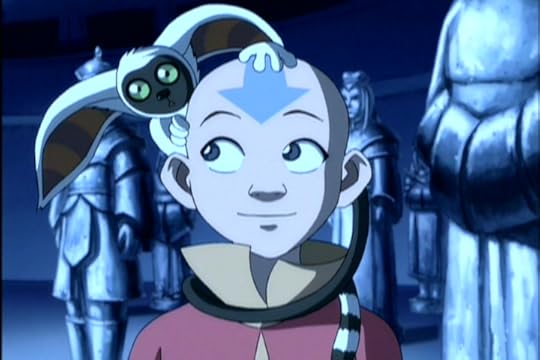
In a more visual medium such as comics or cartoons, animal companions always have something to do: it's a simple thing to get them into a second or two of funny hijinks in between the actual plot stuff, or being petted by someone, or even just lounging in the background to remind us that they exist.
But it's all so much harder to write about. You need to be more conservative with the written word: everything you put on paper has to have more of a purpose, as there's really no foreground or background - there's just ground, just the same words for everyone. What would be a funny bit of shenanigans in the back, or a half-second cut, now stands equal to the important stuff.
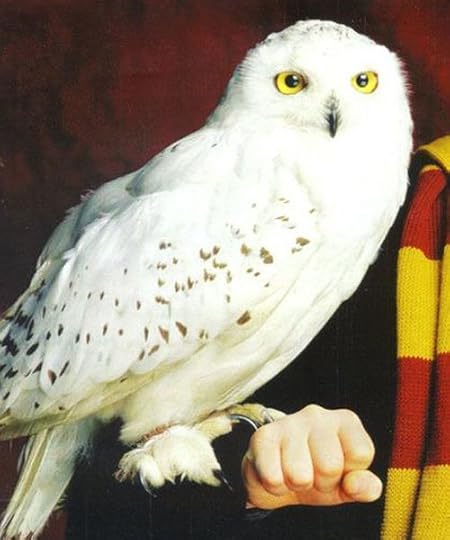
If there wasn't mail to be delivered or other plot stuff she had to be present for, Hedwig was never at the scene at all. She'd have had nothing to do - she couldn't even make a witty remark that a comic relief character might have used to remain relevant. In the end, we'd have forgotten she even existed at all. Or at the opposite end, her hooting about and pecking at people would have gotten in the way of everything, in-universe and out of it.
The thing that arose this point was me writing a short story involving, among other things, a wolf approaching Peal to beg for scraps, then following him around for a while. In a cartoon it would've been a no-brainer - give him someone to hang out with, so that he wouldn't need to be all alone in the wilds; some more variety to scenes, a bit of levity, and cuteness value; occasionally even being helpful to him. The vast majority of cartoon heroes had their animal buddies, but in literature it's so much rarer, rarer still to be done in a remotely meaningful way.
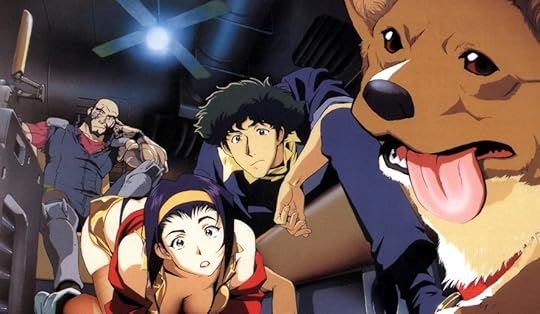
Shame.

In a more visual medium such as comics or cartoons, animal companions always have something to do: it's a simple thing to get them into a second or two of funny hijinks in between the actual plot stuff, or being petted by someone, or even just lounging in the background to remind us that they exist.
But it's all so much harder to write about. You need to be more conservative with the written word: everything you put on paper has to have more of a purpose, as there's really no foreground or background - there's just ground, just the same words for everyone. What would be a funny bit of shenanigans in the back, or a half-second cut, now stands equal to the important stuff.

If there wasn't mail to be delivered or other plot stuff she had to be present for, Hedwig was never at the scene at all. She'd have had nothing to do - she couldn't even make a witty remark that a comic relief character might have used to remain relevant. In the end, we'd have forgotten she even existed at all. Or at the opposite end, her hooting about and pecking at people would have gotten in the way of everything, in-universe and out of it.
The thing that arose this point was me writing a short story involving, among other things, a wolf approaching Peal to beg for scraps, then following him around for a while. In a cartoon it would've been a no-brainer - give him someone to hang out with, so that he wouldn't need to be all alone in the wilds; some more variety to scenes, a bit of levity, and cuteness value; occasionally even being helpful to him. The vast majority of cartoon heroes had their animal buddies, but in literature it's so much rarer, rarer still to be done in a remotely meaningful way.

Shame.
Published on January 14, 2020 04:12
•
Tags:
animal-companions, anime, avatar-the-last-airbender, cartoons, cowboy-bebop, harry-potter, literature, mascots, pets
I wish I'd gotten a globetrotting world-saving adventure when I was 12. The farthest we went was Sweden.
Last time I played Earthbound, I made it till fourth town before losing interest. This was many years ago. Now I'm in Twoson and I'm sure I'll make it to the end this time.
I honestly think that all else being equal, twelve is the best possible age for the main character. You're old enough to be a bit more independent of your parents and other authority figures, to run around on your own and get in and out of trouble, to manage yourself in a tight place and even get into fights. Yet at the same time you're so young as to still be growing into your own person, still figuring out who you are and what you want of life - the best time for character development - still possessing that blissful and carefree attitude we all once held on to, still knowing how to laugh and how to cry and how to love... and of course, there's something tragic about how you already must take up such a burden, when you should be out playing.
This may be the best thing I like about Harry Potter, in retrospect. He started out at about the perfect age, and we got to see him grow up too.
And of course it's entirely possible the whole adventure was just a whole bunch of make-believe. Done right - ambiguously enough, where it may or may not have been, or parts of it may or may not have been - it'd be a story worth Wolfe. Alas.
I wish I was a child again, only with the full wisdom and knowledge adulthood brought me. I never could appreciate it enough the first time around.
I honestly think that all else being equal, twelve is the best possible age for the main character. You're old enough to be a bit more independent of your parents and other authority figures, to run around on your own and get in and out of trouble, to manage yourself in a tight place and even get into fights. Yet at the same time you're so young as to still be growing into your own person, still figuring out who you are and what you want of life - the best time for character development - still possessing that blissful and carefree attitude we all once held on to, still knowing how to laugh and how to cry and how to love... and of course, there's something tragic about how you already must take up such a burden, when you should be out playing.
This may be the best thing I like about Harry Potter, in retrospect. He started out at about the perfect age, and we got to see him grow up too.
And of course it's entirely possible the whole adventure was just a whole bunch of make-believe. Done right - ambiguously enough, where it may or may not have been, or parts of it may or may not have been - it'd be a story worth Wolfe. Alas.
I wish I was a child again, only with the full wisdom and knowledge adulthood brought me. I never could appreciate it enough the first time around.
Published on May 21, 2020 15:41
•
Tags:
children, earthbound, harry-potter, kid-heroes, kids, twelve, video-games
Who's writing this down again? Narrator identity, perspective, and bias
These past few years I've become increasingly convinced that the narrator should always be a character within the confines of the story, even when it's not told in first person. Someone had to record all these events for the later generations to read, after all. And that someone can't be just me, as I was never there to witness it. Otherwise I might as well be making it all up. Right?
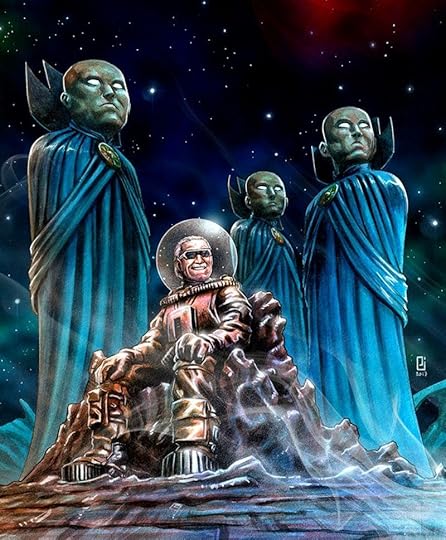
They might be the main hero, as is the case with the true first-person narrative. They might be a sidekick or a follower or some other hang-around, witnessing the events first-hand but having a lesser impact in them all. They might be some historian or chronicler that heard of the events later on, or researched them well after the fact, then finally jotted them down. They might be a sorcerer watching it all from afar through their crystal ball, or some god or other high entity looking down from their cloud.
And yet none of them are entirely reliable, nor trustworthy. The main hero may be lying to make themselves look good, or if they're truly heroic, to downplay their efforts and impact. Their follower's perception might be skewed by wide-eyed hero worship, or by grumpy cynicism and the idea that they alone see the hero's flaws. Either one of them may forget stuff. The historians will of course have a puzzle to put together with several pieces mismatched, fitting to same spots in different ways, or missing altogether. Even the truly omniscient cosmic beings may have their priorities in the wrong order, might decide to skip something interesting or important while paying inordinate attention to something we humans would find completely irrelevant, or might pick sides and praise someone in-story while beating down somebody else, and you might no longer be certain if these events happened how they did.
Sometimes there's more than one narrator. One of my long-term projects involves a knight, his squire, and their retainers going out into the wild. Each of them keeps a journal, and each one gives a different interpretation of the events - sometimes these vary wildly and it's up to the reader whom to believe. Another is narrated by an ill-educated mercenary, who can't actually write and thus has recruited this old nun to scribe it down for him - and they both have their priorities and prejudicies that occasionally clash. I feel that both stories have things to say, that I'm challenged by writing them and improve myself in doing so, and that I'm having a jolly great time with them.

And of course, the view will depend on whether the narrator is actually present in the scene or not - and allows for interesting possibilities where they show up in the middle of it. I'm still a bit proud of the little trick I did where the narrator suddenly swooped in and rescued the main heroes from a bind. If the story's been third person up until that point, this sort of a thing can make for an effective twist.
Many people say that one advantage of first-person narrative is how it gets us straight into the head of the protagonist, to hear what they think and feel what they feel. I don't know about this one. Doesn't close third-person already do it well enough? If that's all you want, then I think you may as well stick with third-person and keep it real close, like what Harry Potter does. True first person view brings with it more opportunities, outlined above, yet also the responsibility of making it seem like it was written down or told to someone long after the fact, else there's dissonance that will throw me off out of it. All too much of first-person literature fails at doing either one of these, which is a shame and a missed opportunity.
Whether you do first- or third-person, your narrative style will offer its own set of possibilities. Use them! Try new things and break new ground! Is that not what fiction is all about?
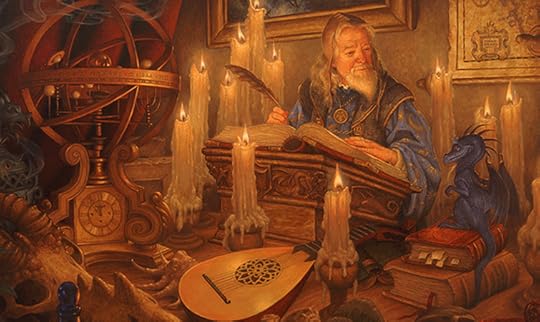

They might be the main hero, as is the case with the true first-person narrative. They might be a sidekick or a follower or some other hang-around, witnessing the events first-hand but having a lesser impact in them all. They might be some historian or chronicler that heard of the events later on, or researched them well after the fact, then finally jotted them down. They might be a sorcerer watching it all from afar through their crystal ball, or some god or other high entity looking down from their cloud.
And yet none of them are entirely reliable, nor trustworthy. The main hero may be lying to make themselves look good, or if they're truly heroic, to downplay their efforts and impact. Their follower's perception might be skewed by wide-eyed hero worship, or by grumpy cynicism and the idea that they alone see the hero's flaws. Either one of them may forget stuff. The historians will of course have a puzzle to put together with several pieces mismatched, fitting to same spots in different ways, or missing altogether. Even the truly omniscient cosmic beings may have their priorities in the wrong order, might decide to skip something interesting or important while paying inordinate attention to something we humans would find completely irrelevant, or might pick sides and praise someone in-story while beating down somebody else, and you might no longer be certain if these events happened how they did.
Sometimes there's more than one narrator. One of my long-term projects involves a knight, his squire, and their retainers going out into the wild. Each of them keeps a journal, and each one gives a different interpretation of the events - sometimes these vary wildly and it's up to the reader whom to believe. Another is narrated by an ill-educated mercenary, who can't actually write and thus has recruited this old nun to scribe it down for him - and they both have their priorities and prejudicies that occasionally clash. I feel that both stories have things to say, that I'm challenged by writing them and improve myself in doing so, and that I'm having a jolly great time with them.

And of course, the view will depend on whether the narrator is actually present in the scene or not - and allows for interesting possibilities where they show up in the middle of it. I'm still a bit proud of the little trick I did where the narrator suddenly swooped in and rescued the main heroes from a bind. If the story's been third person up until that point, this sort of a thing can make for an effective twist.
Many people say that one advantage of first-person narrative is how it gets us straight into the head of the protagonist, to hear what they think and feel what they feel. I don't know about this one. Doesn't close third-person already do it well enough? If that's all you want, then I think you may as well stick with third-person and keep it real close, like what Harry Potter does. True first person view brings with it more opportunities, outlined above, yet also the responsibility of making it seem like it was written down or told to someone long after the fact, else there's dissonance that will throw me off out of it. All too much of first-person literature fails at doing either one of these, which is a shame and a missed opportunity.
Whether you do first- or third-person, your narrative style will offer its own set of possibilities. Use them! Try new things and break new ground! Is that not what fiction is all about?

Published on June 03, 2020 03:39
•
Tags:
close-third-person, first-person, harry-potter, narrative, narrator, omniscient-narrator, omniscient-third-person, skewed-priorities, soldier-of-the-mist, the-watchers, third-person, unreliable-narrator
Pankarp
Pages fallen out of Straggler's journal, and others.
Pages fallen out of Straggler's journal, and others.
...more
- Juho Pohjalainen's profile
- 352 followers



